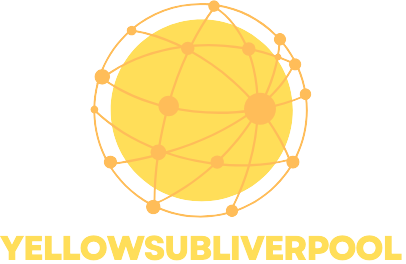Table of Contents
ToggleBlockchain technology is revolutionizing industries beyond just cryptocurrency. Its promise of transparency security and decentralization is capturing attention across finance healthcare supply chains and more. As the technology evolves it’s crucial to stay informed about the latest developments trends and innovations shaping the future.
Recent news highlights breakthroughs in blockchain applications regulatory changes and partnerships that are pushing the boundaries of what’s possible. From decentralized finance (DeFi) to non-fungible tokens (NFTs) the landscape is dynamic and rapidly changing. Understanding these updates can empower businesses and individuals to harness the full potential of blockchain technology.
Dive into the latest insights and explore how these advancements are influencing the world. Keeping up with blockchain news not only enhances knowledge but also opens doors to new opportunities in this exciting digital frontier.
Latest Developments In Blockchain Technology
Recent advancements in blockchain technology reveal innovative solutions and evolving trends that shape various industries. These developments highlight the growing integration of blockchain in sectors like finance, healthcare, and supply chain management.
Innovations and Breakthroughs
Innovations in blockchain technology focus on scalability, interoperability, and energy efficiency. Protocols such as Ethereum 2.0 aim to improve transaction speed and lower energy consumption by transitioning to a proof-of-stake consensus mechanism. Layer 2 solutions, like the Lightning Network for Bitcoin, enhance scalability by enabling faster off-chain transactions. Furthermore, cross-chain interoperability initiatives, like Polkadot and Cosmos, permit seamless communication between different blockchain networks, broadening their application potential. Companies are experimenting with blockchain-based identity verification systems to enhance security and privacy in user authentication processes.
Emerging Trends
Emerging trends indicate a shift towards decentralized finance (DeFi) and non-fungible tokens (NFTs) becoming mainstream. DeFi platforms are experiencing significant growth, with total value locked in DeFi protocols exceeding $80 billion as of recent reports. These platforms offer users decentralized lending and borrowing options, drastically altering traditional financial services. NFTs have gained traction, with sales skyrocketing in art, gaming, and virtual real estate markets, illustrating diverse applications beyond digital art. Sustainability also emerges as a crucial trend, with projects focused on reducing the environmental impact of blockchain through eco-friendly practices and carbon credits.
Impact of Blockchain Technology Across Industries

Blockchain technology significantly influences various sectors by enhancing transparency, security, and efficiency. Its implications span finance, healthcare, supply chain management, and more, showcasing its versatility.
Finance and Banking Sector
Blockchain technology revolutionizes the finance and banking sector. It streamlines transactions, reduces costs, and eliminates intermediaries. Financial institutions adopt decentralized finance (DeFi) solutions, promoting faster execution of global transactions. A report by Deloitte indicates that 40% of surveyed financial executives consider blockchain a strategic priority. Furthermore, blockchain enhances data security, reducing fraud by providing immutable records. Central bank digital currencies (CBDCs) gain traction, with several nations exploring digital alternatives to traditional currencies, offering controlled, secure transactions.
Supply Chain Management
Blockchain transforms supply chain management by providing end-to-end visibility. It enables real-time tracking of products, ensuring transparency and authenticity at every stage. According to a survey by Gartner, 70% of supply chain leaders believe blockchain will be a major disruptor in their industry. Smart contracts automate processes, reducing delays and costs associated with manual interventions. This technology fosters trust among stakeholders, as participants can access shared, tamper-proof data. Moreover, blockchain facilitates a more sustainable supply chain by tracking the environmental impact of products from source to consumer.
Regulatory Updates In Blockchain
Recent regulatory updates aim to create a structured environment for blockchain technology and its applications. These developments reflect growing governmental interest in harnessing blockchain’s potential while ensuring consumer protection and financial stability.
Global Perspectives
Regulatory approaches to blockchain differ widely across regions. The European Union is moving toward comprehensive regulations, with the Markets in Crypto-Assets (MiCA) framework expected to standardize rules for crypto assets. In the United States, the Securities and Exchange Commission (SEC) continues to clarify its stance on digital assets, emphasizing the necessity of classification, while discussions around a potential digital dollar progress. Countries like China push further into blockchain adoption with government-backed initiatives, prioritizing innovation and control. Clear frameworks across jurisdictions support innovation while addressing risks associated with cryptocurrency and blockchain deployment.
Challenges and Compliance
Compliance remains a significant challenge for blockchain projects. Developers often face ambiguity regarding applicable regulations, especially concerning anti-money laundering (AML) and know your customer (KYC) requirements. Many jurisdictions impose strict regulations that necessitate extensive documentation and monitoring, which may hinder innovation. Adapting to differing regulations across borders complicates compliance. Additionally, industry stakeholders must focus on enhancing transparency and reliability to satisfy regulatory expectations. Establishing proactive engagement with regulatory bodies can ease challenges, fostering cooperation to ensure sustainable growth in the blockchain sector.
Notable Blockchain Projects and Initiatives
Various blockchain projects and initiatives continue to demonstrate the technology’s extensive capabilities and real-world applications. The success of these projects reflects the growing adaptability of blockchain across sectors.
Successful Case Studies
- IBM Food Trust
IBM Food Trust utilizes blockchain for food supply chain management, providing transparency and traceability from farm to table. Retailers and producers implement this system to reduce waste and enhance food safety.
- De Beers’ Tracr
De Beers’ Tracr platform leverages blockchain technology to track diamonds from mines to consumers. This initiative ensures ethical sourcing and combats conflict diamonds by maintaining an immutable record of each transaction.
- Everledger
Everledger focuses on asset provenance, initially targeting the diamond industry. Its blockchain solution offers transparency and security for luxury goods, enabling stakeholders to confirm authenticity and ownership history.
- VeChain
VeChain provides solutions for supply chain management across various industries, including healthcare and automotive. By using blockchain, it enhances transparency, reduces counterfeiting, and facilitates real-time inventory management.
- RippleNet
RippleNet revolutionizes cross-border payments with its blockchain-based platform, enabling financial institutions to process transactions instantly and at lower costs. This network enhances liquidity and speeds up settlement times.
Startups to Watch
- Alchemy
Alchemy develops blockchain infrastructure and tools that simplify the development process for blockchain applications. This startup empowers developers with extensive resources, fostering innovation across various projects.
- Chainalysis
Chainalysis specializes in blockchain analysis and compliance solutions, helping businesses and governments monitor cryptocurrency transactions to comply with AML and KYC regulations, enhancing security in digital asset spaces.
- Horizon Blockchain Games
Horizon Blockchain Games focuses on creating blockchain-based gaming ecosystems, including its flagship product, Skyweaver, which enables players to trade in-game assets securely using NFTs.
- Dapper Labs
Dapper Labs, the creator of NBA Top Shot, pioneered the NFT market, allowing users to buy, sell, and trade officially licensed NBA collectible highlights, showcasing the potential of blockchain in digital ownership.
- Fetch.ai
Fetch.ai develops a decentralized machine-learning platform, connecting devices and offering solutions for a more efficient resource management framework across industries. Its use of smart contracts fosters automation and scalability.
Blockchain technology continues to reshape industries and redefine traditional processes. As advancements in scalability and energy efficiency emerge the potential for innovative applications grows. The shift towards decentralized finance and non-fungible tokens highlights a broader acceptance and integration of blockchain into everyday life.
Regulatory developments are also paving the way for a more structured environment, encouraging responsible innovation while protecting consumers. Staying informed about these changes is crucial for those looking to harness blockchain’s full potential.
With numerous successful projects already demonstrating its capabilities the future of blockchain appears bright. As it evolves it promises to drive further innovation and create new opportunities across various sectors.







